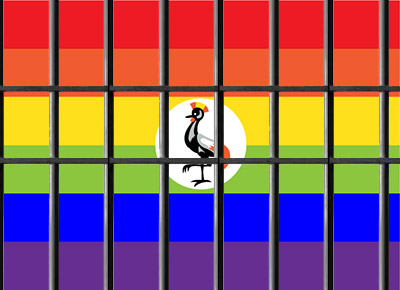GAY GROUPS BACK SA GOV STANCE ON UGANDA
 In a surprising move, six leading LGBTI NGOs have backed the South African government’s “quiet diplomacy” stance on Uganda’s new anti-gay law.
In a surprising move, six leading LGBTI NGOs have backed the South African government’s “quiet diplomacy” stance on Uganda’s new anti-gay law.
The government has been slammed by numerous sectors of civil society for failing to loudly condemn the oppressive Ugandan law, or similar laws in other African countries.
In a statement, the groups – OUT, Gay and Lesbian Memory in Action, Forum for the Empowerment of Women, Durban Lesbian and Gay Community and Health Centre, Pietermaritzburg Gay and Lesbian Network and Triangle Project – said that they had met with representatives from the Department of International Relations and Cooperation (DIRCO) on Friday on the issue.
“From developments over the past week it appears that the Ugandan Government remains publicly unmoved by the wide-ranging criticism of its homophobic legislation,” noted the groups.
They argued that “further public pressure from the South African Government might have the negative effect of further polarisation and hardening of attitudes,” adding that “at this point, a more constructive approach might lie within further relationship building to address homophobia within Africa on the longer-term.”
Dr Ingrid Lynch from Triangle Project commented: “We believe that the Ugandan and similar other laws such as the Nigerian Same Sex Marriage Prohibition Act are totally abhorrent.
“However, we need to think strategically and start building relations with Governments and civil society groups and individuals. This might be a very long-term process with no quick solutions. We will continue our involvement with DIRCO and other stakeholders to further the protection of sexual and gender rights throughout Africa,” she said.
The six groups warned of “rising threats not only to sexual minorities but also to women’s rights more broadly.” It highlighted the passing of the Ugandan Anti-Pornography Bill, which bars women from wearing “indecent clothing” like miniskirts, as indicating “a deepening in fundamentalism in the region.”
Last week, the Department of International Relations and Cooperation (DIRCO) issued a statement that while expressing concern about “the situation of LGBTI persons worldwide” fell short of condemning the Ugandan law.
Home Affairs Minister Naledi Pandor also commented that “Countries pass many bills and we don’t really comment on them, so I don’t know why you need a special comment by the government on this.”
She added, however, that “the position of South Africa on sexual orientation and the rights to equality are very clear, both in the bill of rights and the legislation that has been passed in this country.”
Do you agree that the government should be allowed to quietly go about challenging anti-gay laws behind the scenes, or should it take a more visible and public approach?
Those who believe that quiet diplomacy is what is called for at this stage are sadly kidding themselves. The Zuma-led government feel no moral impetus to act against a partner African nation. Do we forget that President Zuma is the same leader who declared in 2006 that same-sex marriage is “a disgrace to the nation and to God”? Naledi Pandor likely represents the genuine attitude of the ANC leadership. Quiet diplomacy is what made so many SA- and AU-led initiatives fail miserably in our recent history, whilst allowing activists to rest comfortably on the sidelines while putting their trust in a government that will not act in the same direct, public fashion as Western nations. Stop kidding yourself, people. You’re repeating the same mistakes of so many gay politicos, spending more time talking and issuing press statement than acting, confronting and banging your fists.
Would they have liked the silence and quiet diplomacy through apartheid that would have got far!!! The lgbt community in Uganda has felt abandoned by sa govt for years. There has been 5 years for quiet diplomacy and there was none. Too late now… Too late… and as for that quote by Pandor any lgbt organization that supports such an attitude ought to think about the marginalization or lack of understanding about the anti gay laws and its severity. That remark derogates from everything else said. And if allowed to stand unchallenged then you may as well sign your own constitutional death warrant for the future.
I fear that may be the problem. We believe ourselves shielded by a constitution, believing that what is happening in Uganda won’t embolden calls for the same changes here. We can already foresee Zimbabwe falling in line behind Uganda and Nigeria. Do we have to wait until people here start declaring the same anti-gay beliefs and making the same demands here before we, as a community, decide to rise and act, rather than acting as a ward of the State? Telling ourselves “it won’t happen here” is essentially the coward’s way out and, indeed, akin to writing the death warrant for our own civil liberties.
It may be indeed very convenient for South Africans to use their newly acquired quiet diplomacy forgetting that if the whole world had used quite diplomacy when the apartheid government was butchering black people the very same South Africans would have cried foul. We all need to speak very clearly against the kind of Human Rights abuses happening in Uganda. Keeping quite and hiding behind the finger of strategy is the highest level of cowardice I have ever seen. You may as well come out of your closets and just say “We are glad it is not us”.